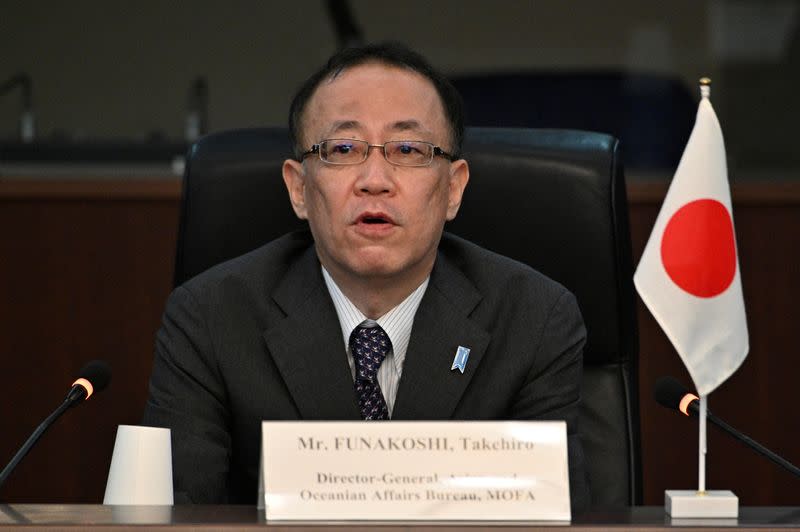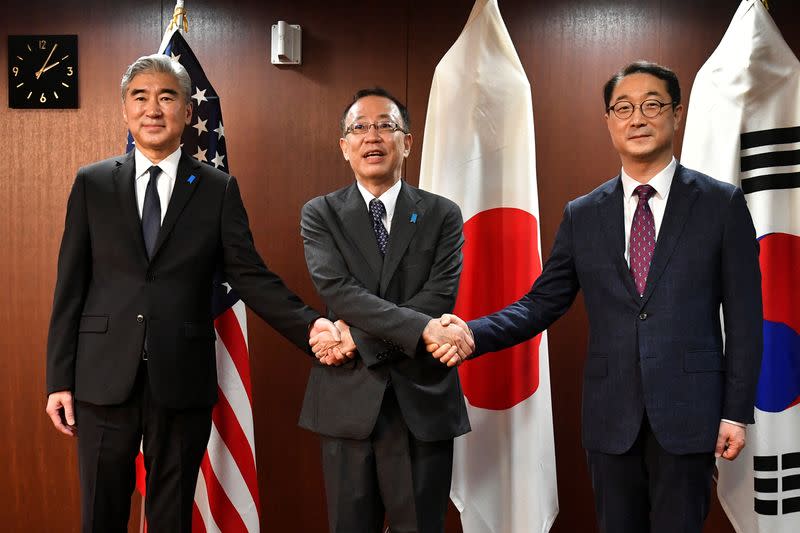Japan, S Korea, U.S. agree on tighter nuclear ties over N Korea threat
By Elaine Lies
TOKYO (Reuters) - The nuclear envoys of Japan, South Korea and the United States agreed on Wednesday to strengthen security ties in the face of potential "provocation" from North Korea in the form of a nuclear test.
North Korea has conducted an unusual number of missile launches this year while the United States has warned that Pyongyang could sell weapons to Russia.
Wednesday's trilateral meeting in Tokyo followed similar talks over the past two months, including between security advisers in Hawaii last week amid signs North Korea may be about to conduct its first nuclear test since 2017.
"North Korea is continuing and even accelerating its nuclear and missile capabilities, and there is a looming chance of further provocation, including a nuclear test," Japanese envoy Takehiro Funakoshi said before Wednesday's discussions.
"At the same time, we remain open to entertaining dialogue with North Korea," he said, adding that Pyongyang was always welcome at negotiations, a sentiment endorsed by Sung Kim of the United States and Kim Gunn from South Korea.
Sung Kim also said Washington was prepared for any contingency, adding: "Our bottom line has not changed. Our goal remains a complete denuclearization of the Korean Peninsula."
Japan's Foreign Ministry later said in a statement that the three had shared deep concerns about Pyongyang's recent activities.
North Korea has conducted missile tests at an unprecedented pace this year.
In mid-August, North Korea fired two cruise missiles from its west coast after South Korea and the United States resumed their largest field exercises in years. Pyongyang has long denounced the exercises as a rehearsal for war.
South Korea's national security adviser, Kim Sung-han, said after the Hawaii meeting that he and his counterparts had agreed there would not be a "soft" response if North Korea conducted a nuclear test. He did not give details, but the government has previously mentioned more sanctions.
An additional concern is that North Korea may sell arms to Russia, its old Cold War ally.
The White House said on Tuesday that Russia could be about to buy "literally millions" of artillery shells and rockets from Pyongyang, though it had no indication that the purchase had yet occurred.
(Reporting by Elaine Lies; Editing by Chang-Ran Kim, Gerry Doyle and John Stonestreet)




